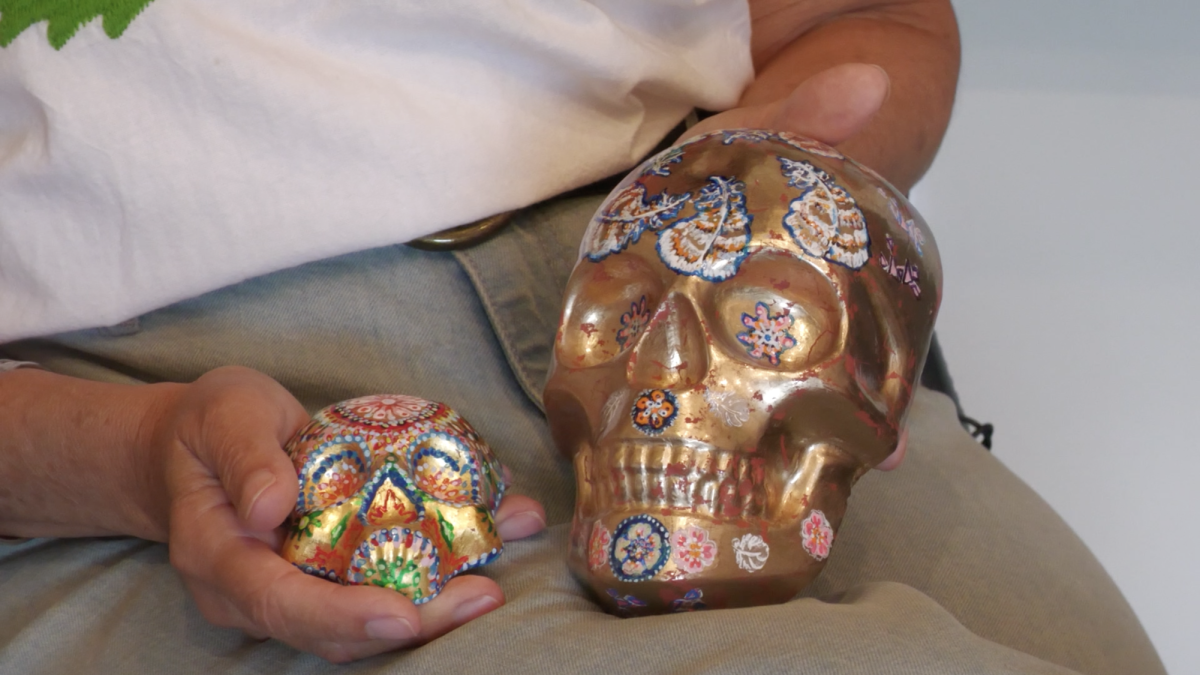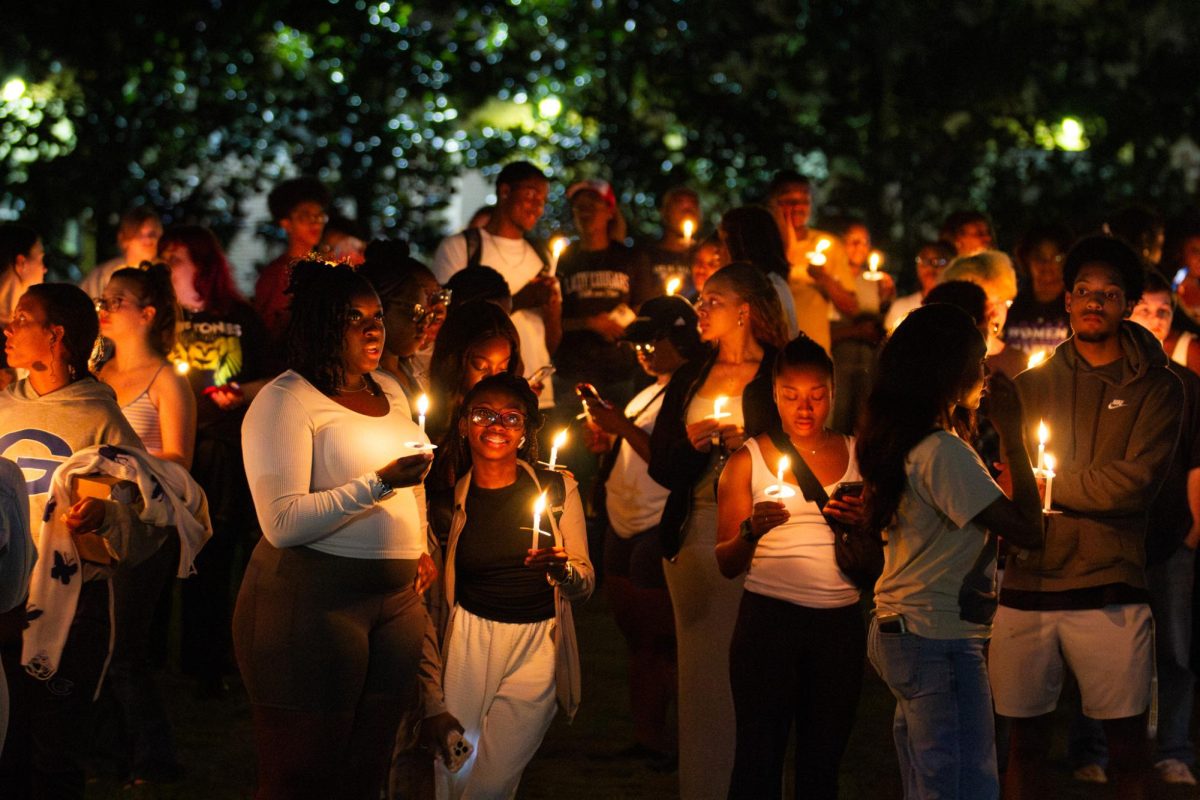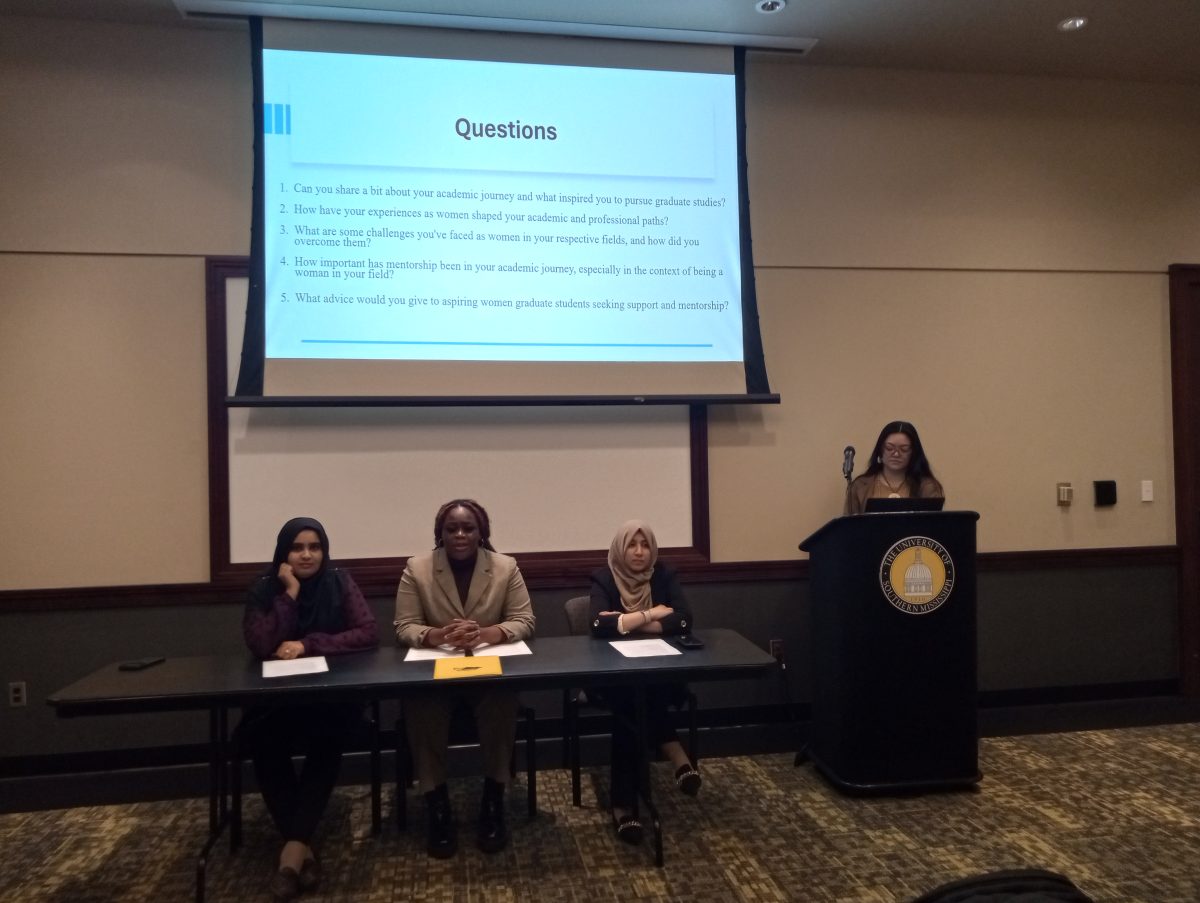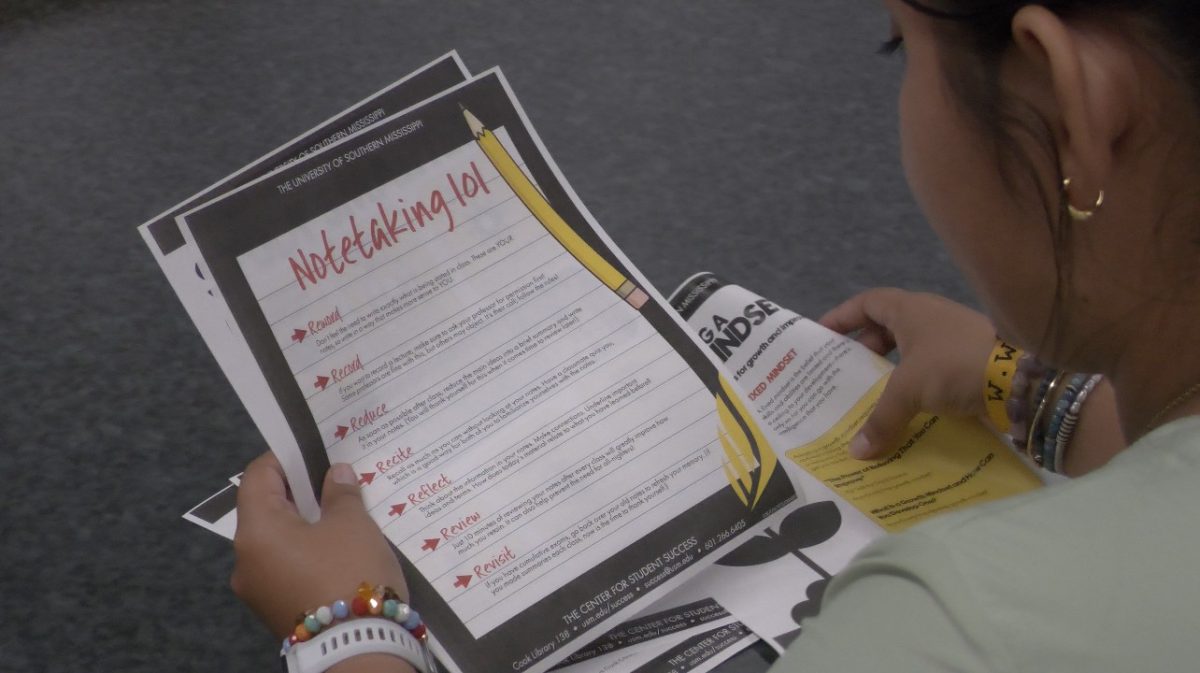Shiza Shahid, Saba Shahid, and Olajuwon Olagbegi, students in the Southern Miss School of Psychology recently hosted a panel to discuss women in graduate school, in recognition of Women’s History Month. The panel was moderated by Jenna Dittman. And at the event, the speakers talked about being women of color in STEM and how their background affected their decision to join graduate school.
Shiza Shahid and Saba Shahid, who are from Pakistan, explained that women were discouraged from pursuing higher education in their home country. Despite being from the same country, the two of them faced very different challenges when it came to pursuing higher education. Shiza was encouraged to marry and start a family once she got her bachelor’s but decided to leave the country for further education instead.
Saba, whose family is educated, always encouraged her to get further education. She wanted to join the Pakistani police force but decided not to after seeing how female police officers are treated in Pakistan. She revealed that many women in the police force refused to answer her questions about their experience as women in the force for fear of being shunned if they shared their real experiences. Saba explained that her decision to choose Psychology as her major was also affected by the death of her father. After her father died, Saba became severely depressed. She then researched more on the topic and decided that women needed more support, especially in a heavily patriarchal society like Pakistan.
Olagbegi is from Jackson, Mississippi, and also explained how her hometown and family background shaped her education. Mississippi has one of the lowest literacy rates in the U.S. and that affected how people in Olagbegi’s town viewed education. However, her father, who is Nigerian and always valued education, encouraged her to pursue higher education. The state of education in Jackson and her father’s encouragement motivated her to pursue higher education.
The panel then asked the audience if they had any questions. When asked how they deal with being women in STEM, Olagbegi had a unique answer. She first acknowledged that women in psychology do not struggle as much as women in other parts of STEM because of a relatively higher number of women in the field. She also explained that she does not see it through the perspective of being a woman.
“There have been many times when I was the only woman in a room, and I have rarely noticed it,” Olagbegi said. “I do not consciously think of the fact that I am a woman in a room full of men. When I happen to notice it, I do not care about it because I know that I deserve to be in that room as much as any man there.”
The speakers also went on to explain more of their research topics which included tampon tax, period poverty, and social support for women. The event concluded after the panel answered a few more questions from the audience.































